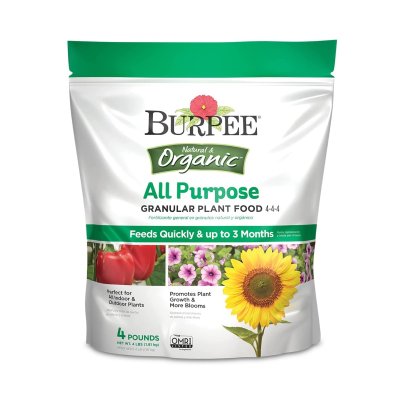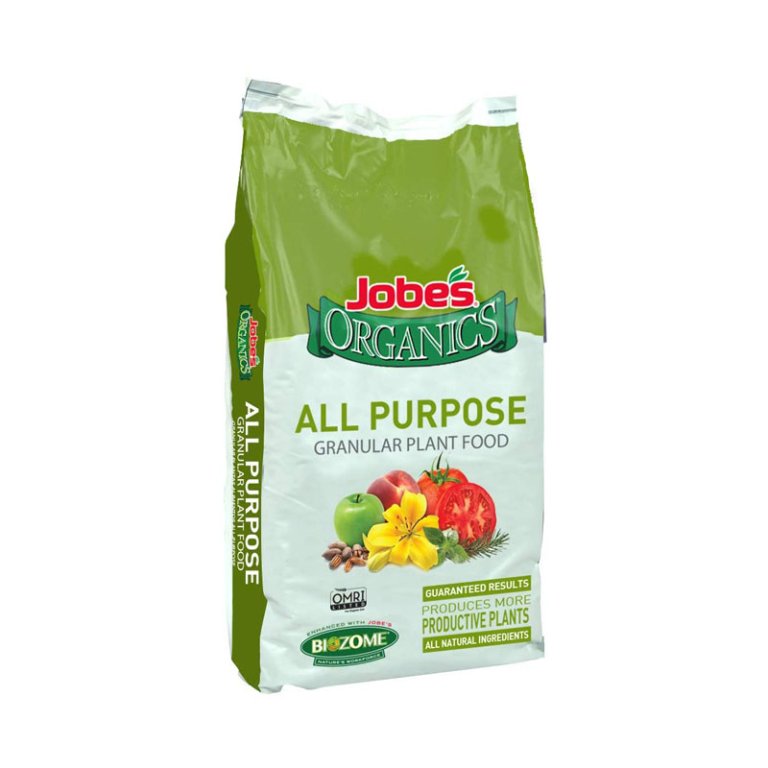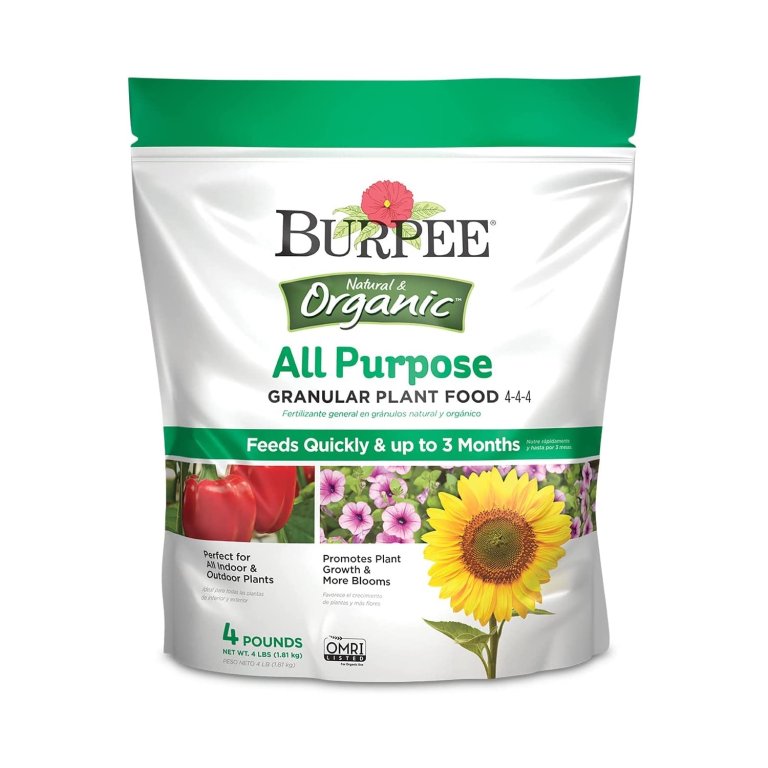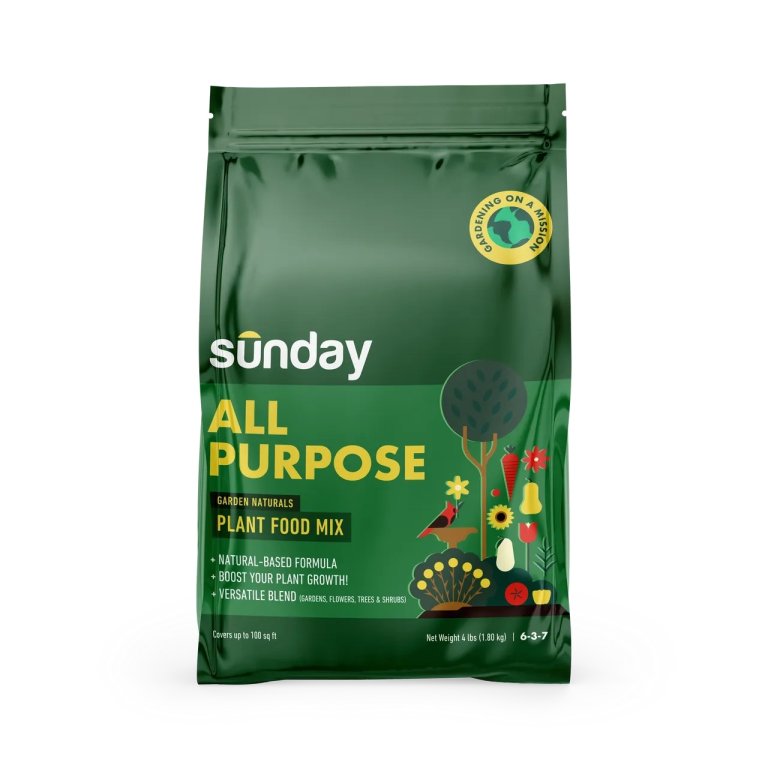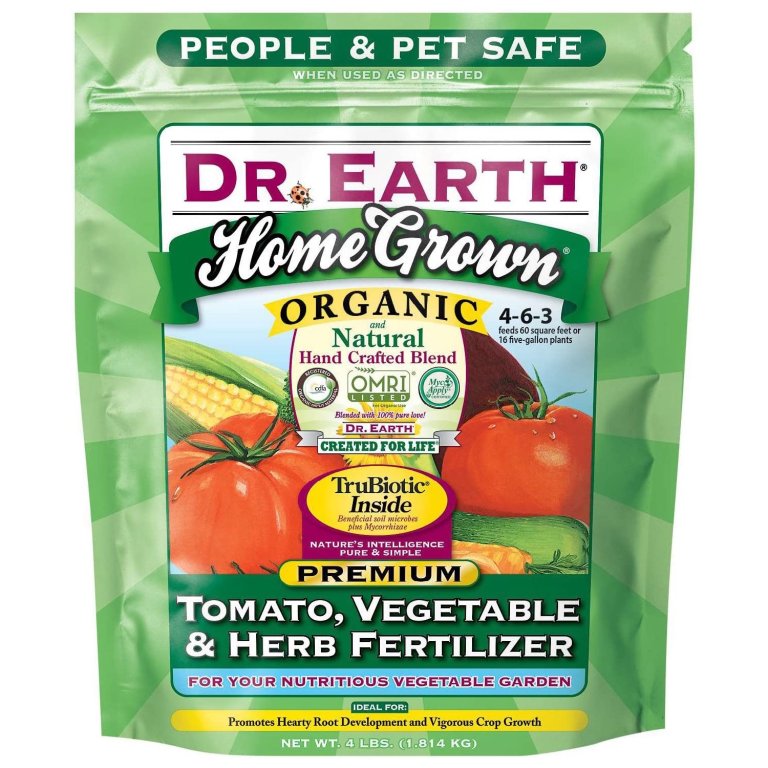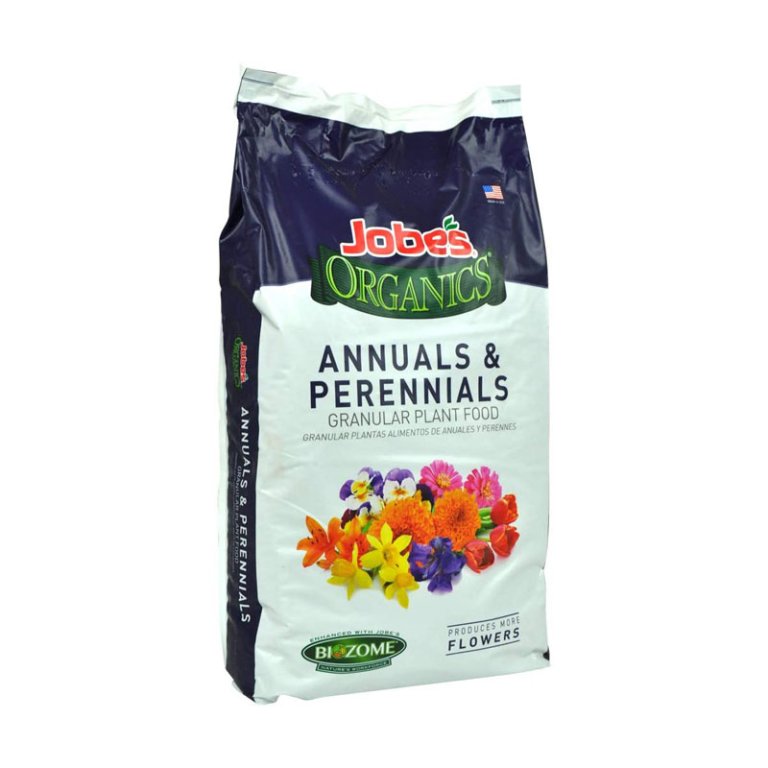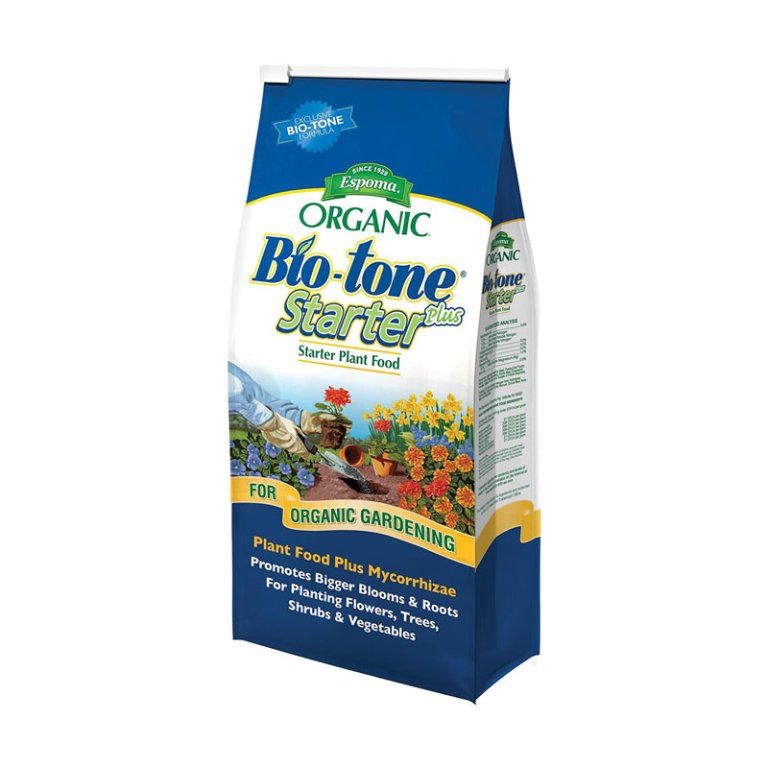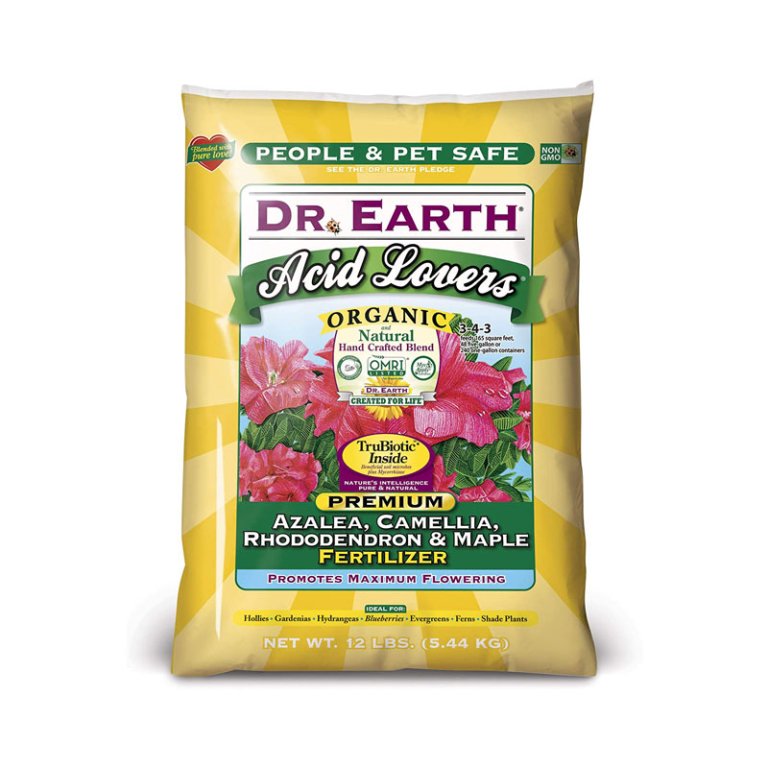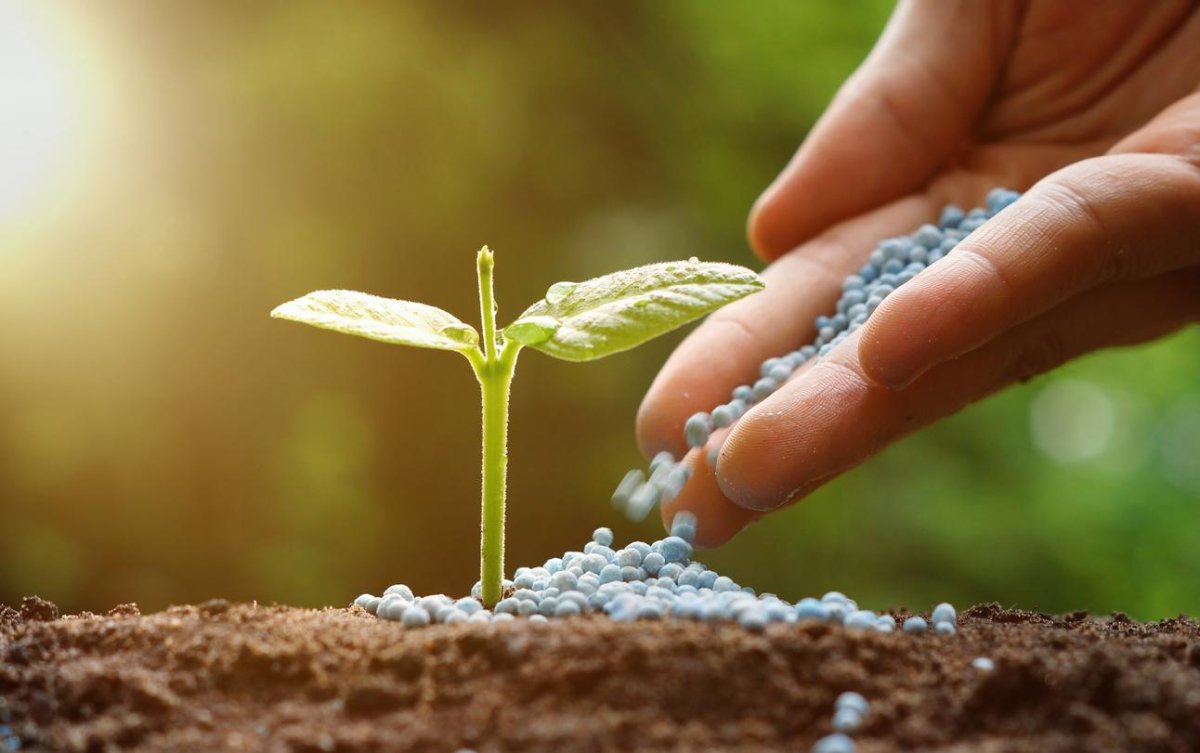
We may earn revenue from the products available on this page and participate in affiliate programs. Learn More ›
Garden plants need nutrients to grow and remain healthy. Adequate soil fertility is as important to plants as a healthy diet is to animals and people. Experienced gardeners know the necessity of understanding soil nutrients so they can use them at the optimal time and in the right proportion with the best fertilizer to supplement the soil.
Choosing a fertilizer can be downright overwhelming because there are so many types and options available. Our favorite is Jobe’s All-Purpose Granular Fertilizer, because of its fast-acting, balanced, multipurpose formula that works for many different types of plants. Read on for tips and suggestions to help when shopping, and don’t miss our roundup of all our favorite picks among the best garden fertilizers available.
- BEST OVERALL: Jobe’s Organics All Purpose Granular Fertilizer
- BEST BANG FOR THE BUCK: Burpee Natural Organic All-Purpose Plant Food
- BEST ORGANIC: Sunday All-Purpose Plant Food Mix
- BEST LIQUID: GS Plant Foods Organic Fish and Kelp Blend
- BEST FOR FRUIT & VEGETABLES: Dr. Earth Organic and Natural Home Grown Fertilizer
- BEST FOR FLOWERS: Jobe’s Organics Annuals and Perennials Plant Food
- BEST PLANT STARTER: Espoma Organic Bio-Tone Starter Plus Fertilizer
- BEST ACIDIC: Dr. Earth Organic and Natural Acid-Lovers Fertilizer
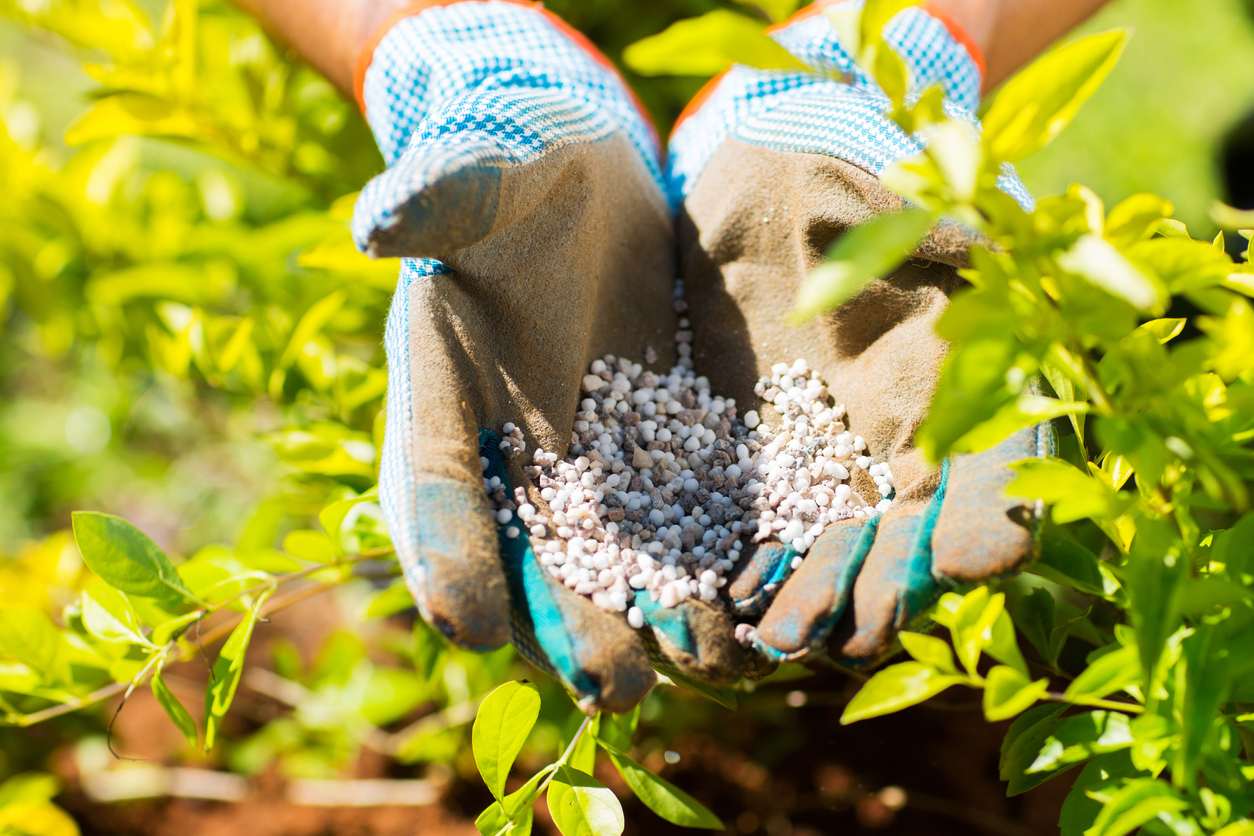
Before You Buy Garden Fertilizer
Choosing the right garden fertilizer is highly dependent on the types of plants being fed. Before buying garden fertilizer, take stock of the plants in the garden and research their individual nutritional needs. Flowers have different nutritional needs than vegetables, and seedlings have different nutritional needs than mature plants.
Before buying and applying a garden fertilizer, consider performing a soil test to determine the soil’s pH level and nutrient content. Use these test results to determine which type of fertilizer is the best fit.
Product Comparison
| Type | NPK Ratio | Quantity | |
| Jobe’s Organics All Purpose Granular Fertilizer | Granular | 4-4-4 | 16 pounds |
| Burpee Natural Organic All-Purpose Plant Food | Granular | 4-4-4 | 4 pounds |
| Sunday All-Purpose Plant Food Mix | Granular | 6-3-7 | 4 pounds |
| GS Plant Foods Organic Fish and Kelp Blend | Liquid | 2-3-1 | 32 fluid ounces |
| Dr. Earth Organic and Natural Home Grown Fertilizer | Granular | 4-6-3 | 4 pounds |
| Jobe’s Organics Annuals and Perennials Plant Food | Granular | 3-5-4 | 4 pounds |
| Espoma Organic Bio-Tone Starter Plus Fertilizer | Granular | 4-3-3 | 4 pounds |
| Dr. Earth Organic and Natural Acid-Lovers Fertilizer | Granular | 3-4-3 | 4 pounds |
Our Top Picks
Organic fertilizers are the safest and most versatile for most landscapes and home gardens. They are unlikely to harm plants from accidental overapplications, are generally people- and pet-safe, and pose a lower risk for water pollution when used according to directions. That said, be sure to feed plants consistently for the best results.
Best Overall
Jobe’s Organics All Purpose Granular Fertilizer
See ItWhat We Like
- Contains bacteria and fungi for soil health
- Increases root mass and promotes healthy plant growth
- Fast-acting, balanced, multipurpose formula
What We Don’t Like
- Needs to be applied every 4 to 8 weeks
- Can have a strong smell, attracting dogs
Product Specs
- Type: Granular
- NPK ratio: 4-4-4
- Quantity: 16 pounds
This all-purpose fertilizer includes a combination of healthy bacteria, mycorrhizal fungi (fungi that form a symbiotic association with plants), and archaea (a microorganism that aggressively breaks down material). It checks the boxes for most basic plant needs, plus it is Organic Materials Review Institute (OMRI) listed for organic gardening by the USDA, which means it’s 100 percent organic and made with all-natural ingredients.
The blend of beneficial microorganisms in the fertilizer helps to improve soil quality, increases root mass, and promotes plant growth. The nitrogen-phosphorus-potassium (NPK) ratio is 4-4-4, which makes it a suitable fertilizer for flowers, a vegetable garden, shrubs, trees, and houseplants.
Get the Jobe’s Organics all-purpose garden fertilizer at Amazon or The Home Depot.
Best Bang For The Buck
Burpee Natural Organic All-Purpose Plant Food
See ItWhat We Like
- Also contains micronutrients and beneficial microbes
- Has received an OMRI label for organic use
- Fine granular texture, making it easy to spread
What We Don’t Like
- Isn’t as readily available from major retailers
Product Specs
- Type: Granular
- NPK ratio: 4-4-4
- Quantity: 4 pounds
Burpee natural organic all-purpose plant food offers great value for a product that is effective and only contains organic ingredients. This fertilizer contains a balanced 4-4-4 formula of macronutrients as well as calcium, minor nutrients, and beneficial microbes. While some nutrients are released immediately, this is a slow-release product that feeds plants for up to 3 months. This versatile formula is suitable for seed starting, bedding plants, vegetable gardens, trees, shrubs, and container gardening, according to the manufacturer.
It comes in a 4-pound resealable bag that’s easy to store between feeding sessions. The product has been certified organic and given an OMRI label for organic gardening.
Get the Burpee garden fertilizer at Amazon or Burpee.
Best Organic
Sunday All-Purpose Plant Food Mix
See ItWhat We Like
- Suitable for both outdoor and indoor plants
- Offers higher nutrient levels than many competing products
- Turkey litter and feather meal improve soil health slowly over time
What We Don’t Like
- Should be applied every 4 to 6 weeks, which is more often than other options
Product Specs
- Type: Granular
- NPK ratio: 6-3-7
- Quantity: 4 pounds
Sunday is known for its all-natural plant care products, and the all-purpose plant food mix is a star performer. According to the manufacturer, it’s a good choice for new or established flowers, vegetable gardens, trees, and shrubs.
Organic fertilizers typically have lower nutrient levels than inorganic formulas, but this product has an NPK ratio of 6-3-7, providing higher levels of nitrogen and potassium than many other organic fertilizers on the market. The fertilizer contains ingredients like turkey litter and feather meal to improve soil health.
While it needs to be applied every 4 to 6 weeks, the amount of fertilizer needed during each application is much less than for other products on this list. It’s also suitable for both indoor and outdoor plants, making it a versatile pick for those with a variety of plants to feed.
Get the Sunday garden fertilizer at Sunday.
Best Liquid
GS Plant Foods Organic Fish and Kelp Blend
See ItWhat We Like
- Liquid formulas provide immediate absorption
- Suitable for most plant types, and can be used on both plants and flowers
- Made from a renewable raw material
What We Don’t Like
- The smaller container comes at a high price per ounce
Product Specs
- Type: Liquid
- NPK ratio: 2-3-1
- Quantity: 32 fluid ounces
Water-soluble fertilizers penetrate the soil, and foliage absorbs them immediately, giving the plants fast access to nutrients. Fish emulsion and kelp are excellent natural sources of nitrogen, phosphorus, and potassium—the three nutrients that help plants thrive. GS Plant Foods’ organic liquid fish and kelp blend delivers these nutrients in a 2-3-1 NPK ratio, so it is safe for any type of plant and serves as a compost enhancer.
Although liquid fertilizers do not tend to last as long as granular fertilizers, they typically come in concentrated forms that need to be diluted before applying. Organic liquid fish and kelp blend comes in a 1-quart, 1-gallon, 5-gallon, or 55-gallon container. It’s compliant for use in organic gardening and OMRI listed for organic use.
Get the GS Plant Foods garden fertilizer at Amazon.
Best For Fruit & Vegetables
Dr. Earth Organic and Natural Home Grown Fertilizer
See ItWhat We Like
- Contains organic and feed-grade ingredients
- The formula includes both essential nutrients and trace elements
- Designed to be used as a starter, a top dressing, or a compost tea
What We Don’t Like
- Primarily used for vegetable growth; not suitable for all plant types
- The powder form must be worked into soil
- Dogs may be attracted to the food-grade ingredients
Product Specs
- Type: Granular
- NPK ratio: 4-6-3
- Quantity: 4 pounds
Made from human- and feed-grade ingredients, Dr. Earth fertilizer is enriched with multiminerals, proteins, carbohydrates, humic acids, and trace elements that promote the healthiest soils. It’s versatile, too. Use Dr. Earth as a starter fertilizer during initial planting and transplanting and regularly as a top dressing or in compost tea.
Dr. Earth fertilizer contains no synthetic chemicals, chicken manure, or toxic ingredients, so it’s safe for pets and people. This fertilizer is sustainably made in the United States and carries the OMRI seal.
Get the Dr. Earth Home Grown garden fertilizer at Amazon or Target.
Best For Flowers
Jobe’s Organics Annuals and Perennials Plant Food
See ItWhat We Like
- Improves soil condition over time
- Pet- and people-friendly
- Balanced formula for flowering plants
What We Don’t Like
- Strong smell of manure
Product Specs
- Type: Granular
- NPK ratio: 3-5-4
- Quantity: 4 pounds
Featuring Biozome with archaea (Jobe’s proprietary microbe package), this fertilizer rapidly breaks down nutrients in the soil for faster results and improves soil condition over time by increasing microorganism activity for a healthier, living soil. Made from all-natural materials and certified for organic use, this fertilizer is pet- and people-friendly, will not cause fertilizer burn, and is safe for the environment.
The fertilizer analysis for this Jobe’s product is 3-5-4, which makes it a good source of nutrients for most annual and perennial plants. Use the granular formula on flowering plants such as impatiens, begonias, marigolds, zinnias, blue minks, lilies, daylilies, peonies, ferns, and more.
Get the Jobe’s Organics annuals and perennials garden fertilizer at Amazon or Ace Hardware.
Best Plant Starter
Espoma Organic Bio-tone Starter Plus Fertilizer
See ItWhat We Like
- Designed to promote root growth
- Contains beneficial fungi along with key macronutrients
- Ideal for starting a wide variety of plants
What We Don’t Like
- Works best when placed in the hole at planting
Product Specs
- Type: Granular
- NPK ratio: 4-3-3
- Quantity: 4 pounds
Specially enhanced with beneficial bacteria and starter cultures of seven different beneficial mycorrhizal fungi, Espoma Organic Bio-tone Starter Plus fertilizer promotes maximum root development directly after transplanting. Mycorrhizal fungi work symbiotically with the root system of the plants to greatly increase the amount of water and nutrients a plant can use.
Use of Bio-tone Starter Plus during planting will help seedlings develop a healthy colony of mycorrhizal fungi so the plants will settle into their new homes more quickly and thrive in the long run. With an NPK ratio of 4-3-3, Bio-tone Starter Plus is a good all-purpose starter fertilizer that gardeners can use in garden beds for all types of plants.
Get the Espoma fertilizer at Amazon or Ace Hardware.
Best Acidic
Dr. Earth Organic and Natural Acid Lovers Fertilizer
See ItWhat We Like
- Helps lower soil pH
- Assists plants with absorbing nutrients efficiently
- Designed for fast release
What We Don’t Like
- Strong smell
- Isn’t suitable for products requiring alkaline soil
- Has a Proposition 65 warning
Product Specs
- Type: Granular
- NPK ratio: 3-4-3
- Quantity: 4 pounds
Some plants need a little acidity to look their best. Acid fertilizers lower soil pH to free up and help plants access nutrients rendered unavailable in high-pH soils. Dr. Earth Organic and Natural Acid Lovers fertilizer is ideal for hollies, gardenias, hydrangeas, blueberries, evergreens, ferns, shade plants, azaleas, camellias, rhododendrons, and maples. It temporarily lowers pH values in the soil, allowing the plants to absorb the nutrients they need to promote healthier foliage and bigger blooms.
This fertilizer is specially designed to release a portion of nutrients quickly and provide continuous feeding for several months of long-lasting results. It’s also safe for people and pets when used as directed.
Get the Dr. Earth Natural Acid Lovers garden fertilizer at Amazon or The Home Depot.
Or, DIY Your Own Garden Fertilizer
Compost can provide beneficial microbes and nutrients for plants. It can be made easily at home with vegetable scraps and yard clippings. Ingredients like coffee grounds, banana peels, and other kitchen scraps all make excellent natural fertilizers. Compost should make up about half of the total volume of the fertilizer blend.
Bone meal provides phosphorus, which encourages root growth, flower production, and better fruit yields. This organic material also helps plants resist disease and increases the number of beneficial microorganisms in the soil. Bone meal should make up one quarter of the total volume of the fertilizer blend.
Kelp meal is full of trace minerals like calcium, iron, zinc, magnesium, and boron that help keep plants healthy. Kelp meal can help promote microbial activity in the soil as well as improve its structure. This organic material should make up one eighth of the total volume of the fertilizer blend, too.
Fish emulsion is a great source of nitrogen, which helps plants produce the protein needed for photosynthesis, flowering, and fruiting. Fish emulsion also contains other essential minerals like potassium, calcium, and magnesium that allow plants to thrive even when conditions are unfavorable. This organic material should also make up one eighth of the total volume of the fertilizer blend.
Jump to Our Top Picks
How We Chose the Best Garden Fertilizers
Garden fertilizers can give new plants a boost and feed plants throughout their growing season. We looked at fertilizer types and common plant needs to come up with this carefully curated list of some of the best garden fertilizers.
We considered more than 20 garden fertilizer options, and we weighed a number of practical considerations. We analyzed the nutrient ratios, the purpose of various products, and the quantity of fertilizer in packages before making our recommendations.
The list includes multipurpose formulas and a few designed for specific garden uses.
- Organic vs. inorganic: We only considered organic fertilizers for this guide since they are capable of top-notch performance without causing any negative environmental impact.
- Type: We considered both liquid and granular formulas for our recommendations since both fertilizer types offer unique benefits.
- Value: Since fertilizers vary in type and quantity, it can be hard to determine a product’s value. We ensured that each recommended product offered excellent value, regardless of the format.
Our Verdict
We recommend Jobe’s Organics all-purpose garden fertilizer as our top pick for its organic formulation, fast-acting results, and ready availability. There are other common garden fertilizer options, including Miracle-Gro Shake ‘N Feed All Purpose Plant Food and JR Peters All Purpose Fertilizer. However, they do not meet our sustainability guidelines and are not recommended in our top picks due to their potentially harmful ingredients and negative impact on the environment.
Types of Garden Fertilizers
Fertilizer comes in three basic forms: granules, liquid, and stakes. Each type of fertilizer can be classified as either organic or inorganic.
Granule Fertilizers
Gardeners apply fertilizer granules by either mixing them into the soil at planting time or by “top dressing.” Top dressing simply means sprinkling the granules on the soil surface over the plant’s root zone. Granular fertilizers are available in either slow-release or quick-release formulas.
- Slow-release fertilizers provide a steady flow of nutrients for an extended time, up to a full growing season. These fertilizers comprise organic or inorganic ingredients. Soil microbes break down organic slow-release fertilizer and make it available for plants to use. Manufacturers coat inorganic slow-release fertilizer pellets to slowly dissolve as water moves through the soil.
- Quick-release fertilizer is inorganic. It should dissolve fully into the soil within just a few weeks, giving plants a quick burst of nutrients.
Liquid Fertilizers
Liquid fertilizers include ready-to-mix dry granules and liquid concentrates. They can consist of either organic or inorganic ingredients. Water-soluble fertilizers can soak the roots, or in some instances, spray right onto plant foliage. These formulas are available to the plant immediately.
Fertilizer Spikes
Fertilizer spikes also come in either organic or inorganic formulas. They act similarly to slow-release fertilizers. Calculate the number of spikes needed for a plant based on plant size and manufacturer directions. Space the spikes evenly around the edge of the plant’s root zone and push them into the soil.
Organic vs. Inorganic Fertilizers
There are two major differences between organic and inorganic fertilizers: ingredients and the way nutrients become available to the plant.
- Organic fertilizers add vital organic matter to the soil and work with the living microorganisms in the soil to feed plants. These fertilizers come from plant and animal sources: composted chicken manure, bone meal, blood meal, alfalfa meal, cottonseed meal, and kelp meal.
- Inorganic fertilizers are highly concentrated and feed plants directly. Manufacturers make inorganic, or synthetic, fertilizers from the synthesized chemicals of nitrogen, phosphorus, and potassium, sometimes as byproducts of other industrial processes.
What to Consider When Choosing Garden Fertilizer
NPK Ratios
It is usually best to begin with a soil test to determine the natural fertility of a garden soil before applying fertilizer. Contact the local Cooperative Extension Service to submit a soil sample for testing. The results will show which nutrients the soil might lack, so those nutrients can be provided in the form of fertilizer.
The major nutrients in fertilizer are nitrogen, phosphorus, and potassium. Fertilizer products list these elements on the bag as a ratio such as 10-10-10 or 4-3-4. The package listing always appears in the order NPK.
Determining the right ratio for a garden depends on what the specific plants need.
- Nitrogen supports foliage plants’ growth. High-nitrogen fertilizer is useful to help grass start growing in spring or to help leafy greens produce a heavy yield.
- Phosphorus helps plants establish roots, produce flowers, and develop fruit. High-phosphorus fertilizer is useful as a starter fertilizer or to spruce up annual flower beds.
- Potassium is an important element for rigid stems and overall plant health. Potassium helps plants get through drought and other growing stresses.
Plant Needs
Different kinds of plants, and plants at various stages of life, have different nutrient requirements. Flowering and fruiting plants need plant food with higher phosphorus content, while plants grown for foliage need more nitrogen.
Planting a new flower, vegetable, or herb bed? Use a starter fertilizer to help the young plants become established in their new home.
Do the azaleas, camellias, gardenias, or blueberries look weak and puny? Perk them up with a fertilizer specifically formulated for acid-loving plants.
Quantity
Regular fertilizer applications keep plants vigorous and productive. How often fertilizer should be applied depends on the soil type and whether the plants are in raised beds or containers. Most plants growing in porous, well-drained soil or in containers need more frequent feeding, about every 3 to 4 weeks throughout the growing season. Plants growing in clay soils typically require less fertilizer. One application every 4 to 6 weeks after planting is usually enough.
Typically, granular fertilizer will go further than a liquid fertilizer. To determine how much fertilizer is needed, look at how much area one bag or bottle covers and divide that by the square footage of the garden beds. The result will indicate how much fertilizer will get the plants through the growing season.
FAQs
The best time to fertilize outdoor plants is when they are placed in the ground, beginning with added compost or a starter fertilizer. After that, plants need nutrients during their peak growing season, typically spring through summer. When choosing a long-acting or continuous feeder, you can apply it less often.
Vegetables need a good start since they typically have a short, one-time growing season. Start them out with a boost of nutrients and good soil, and then apply a balanced fertilizer for vegetables and herbs like Dr. Earth Home Grown garden fertilizer for tomato, vegetable, and herb gardens.
The best fertilizer depends on the plants. Lawn fertilizers, for example, differ from vegetable fertilizers. Many native plants need little to no fertilizer, assuming they are growing in decent soils. But flowering plants often need a boost so the plant can stay healthy plus send extra energy into producing lots of large, colorful flowers. Try Jobe’s Organics all-purpose garden fertilizer for beautiful blooms.
Apply most balanced (10-10-10) fertilizers monthly during the growing season to boost the health of perennial plants. But be sure to check the package directions, since some fertilizers have slow-release formulas that last longer.
Nutrient-rich soil is the best type for gardens, and keeping soil balanced and with plenty of humus is preferred by many gardeners over adding fertilizer regularly. Get healthy soil with annual additions of organic compost such as manure, homemade compost from kitchen scraps, and even leaves or grass clippings. Mix up the ingredients for the best effect, and use organic fertilizer as needed.
Ground-up eggshells can add some calcium and other nutrients. They won’t necessarily provide all nutrients that all plants need, and they break down slowly, so effects are not immediate. Still, adding them can be part of any effort to maintain soil health; they do not contain enough of any ingredient to harm plants.

